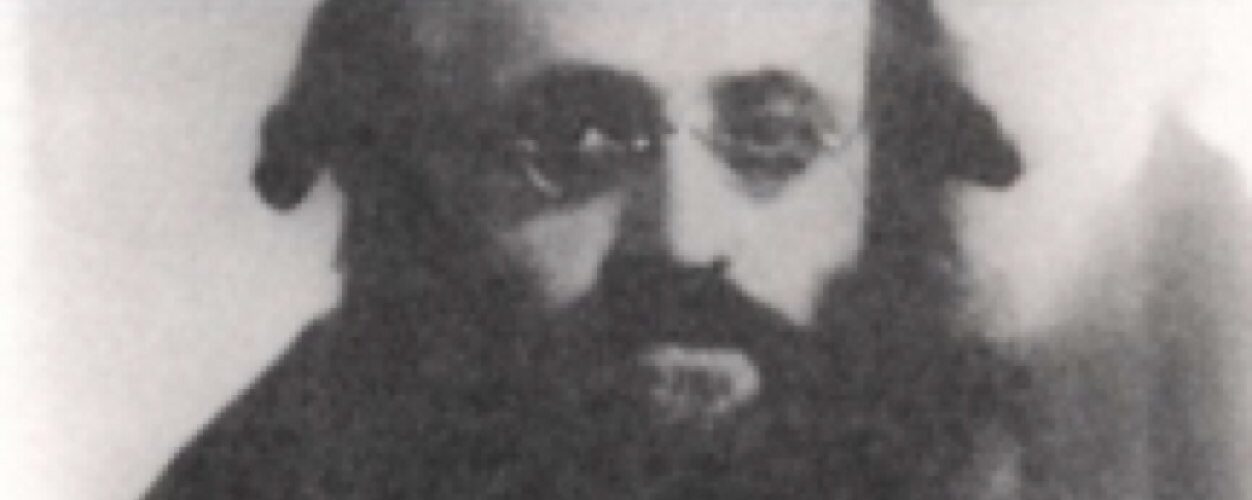A Calming Voice Amid Stormy Waters
A Calming Voice Amid Stormy Waters
By Harav Y. Reuven Rubin Shlita
The days draw in, darkness envelops the world with its chilling touch, and our souls seek hope. The spiritual heights reached on the Yomim Tovim seem as shiny mercury, shimmering but suddenly elusive to hold onto. Bereishis has slid by with barely a moment to breathe; all those deep lessons waiting to be learned with no time to really think. Parshas Noach arrives amidst all these feelings, swirling around our peripheral awareness with vital lessons for survival.
The waters of corruption swirl throughout the whole of our world; our minds are stretched to breaking point from all the pain that lays siege to many around us. We feel the gut- wrenching suffering many of our brethren experience as “at risk” kids go astray, and homes become sites of emotional firestorms. We look for hope and feel so alone. As Torah Yidden we know we must have bitachon in Hashem, but we fear we are being worn down and are close to shattering.
“He cries out from that long lost world to the one we are in, asking for understanding, pleading that we give love to those who are challenged and lost”
All of this is nothing new to our people, as bad as it may seem today. We need look no further back than the Jewish world between the two World Wars. The flood of assimilation that deluged the world before the Churban tore apart every family. The Shver zt”l would often speak of how Yidden sitting in Chassidishe shteiblech in Warsaw and Lodz were plagued with children who were running off to join the communists, secular Zionists or whatever other “ism” was popular at the moment. No one was untouched; even Rabbonishe homes were ripped apart. The future Gedolim of post-War Torah rebuilding were often the product of homes riven with strife and they often had to run away as youngsters and sleep on benches in small shuls to find spiritual safety.
Into this maelstrom arose a tzaddik whose understanding of the needs of his times have become the beacon to many today. The Peasetzna Rebbe zt”l, the Aish Kodesh, embraced his world with his love for the young and his empathy for all. Author of the famous sefer Chovos Hatalmidim the Rebbe was the father to thousands and the address many went to for direction in those stormy times. The Bobover Rebbe, Rav Shlomo zt”l, made a point of visiting the Rebbe when he was in Warsaw, so as to learn from this master of pedagogy. His sefer Aish Kodesh was miraculously discovered in the ruins of the Warsaw ghetto after the war, and untold thousands have been able to gain strength from his words in our own difficult times.
Our shteibl in Manchester is named after this tzaddik, and is the only kehillah in Europe that carries the Rebbe’s holy name.
This Shabbos, Parshas Noach, is the Rebbe’s yohrzeit. The Rebbe was killed by the Nazis after the liquidation of the Warsaw Ghetto. The tzaddik was offered papers that could have gotten him out of the death camps, yet, he refused to be parted from his people.
As we see in Parshas Noach, it is the tzaddik of the generation that brings stillness within the storms of a corrupt world. Noach waited to the last minute to enter the Teivah. Guta Yidden explain he did so because he wouldn’t give up on mankind. He waited in hope that somehow the world would come to its senses and return to the sanity that Hashem sought for all His creations. The Rebbe waited to the end, giving support, sharing in the bitterness, speaking of emunah.
In our shteibel we often learn together from his seforim. When I learn the opening chapters of Chovos Hatalmidim, a chapter written for parents and teachers of his time, listeners can’t but be amazed. He is speaking to our world. His community was going through that which we see in our troubled youngsters. He cries out from that long lost world to the one we are in, asking for understanding, pleading that we give love to those who are challenged and lost.
The Rebbe was a Gaon and a leading thinker in the world of Chassidic masters, yet at his gatherings he would dance with the children and give them pride of place at his table. I heard of an older woman in America who had witnessed the Rebbe’s davening in Warsaw. Her eyes would well up with tears as she remembered how this tall, venerated Godol would make a point of lifting his head slightly towards the mechitzah and saying good Shabbos, knowing that there were young girls there just waiting for his blessing.
This is not the place for a detailed history of the Rebbe nor of his works. Many of his words have been translated into English so that the thousands who are seeking clear guidance and inspiration can share in his illumination.
I just find the confluence of Parshas Noach and the Rebbe’s yohrzeit an amazing source of inspiration. He knew the pain of golus, understood it in all its guises, yet in that darkness he was the Noach who tried to bring comfort and hope.
May his memory be a zechus for all of Klal Yisroel, and may we examine deeply his messages and thereby gain desperately- needed courage in the face of the challenges that lie ahead.


